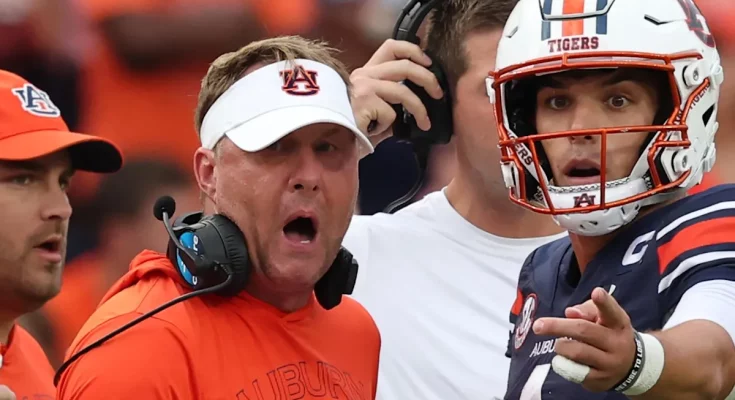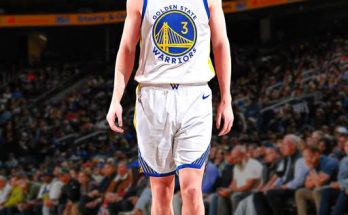As Hugh Freeze steps into what many are calling a make-or-break season for Auburn football, the program itself finds itself at a familiar crossroads. Auburn’s history is peppered with moments where the stakes felt just as high, and the outcome of a single season had the power to redefine the direction of the Tigers’ football future. For Freeze, the pressure is immense—not only to win games but to prove that his vision can restore Auburn to national prominence after years of inconsistency and unmet expectations.
Auburn football is no stranger to pivotal seasons that test the mettle of coaches and players alike. The program, with its rich tradition, passionate fan base, and fierce SEC competition, has experienced peaks of glory and valleys of disappointment. Freeze’s arrival was met with cautious optimism, fueled by his previous success as a head coach and his reputation for offensive innovation and recruiting prowess. Yet, the expectations placed on him were sky-high, as Auburn supporters are hungry to return to the elite tier of college football.
Looking back at Auburn’s past, there are clear parallels to Freeze’s situation. Historically, the program has faced similar moments where a season’s results could either cement a coach’s legacy or hasten his exit. Coaches like Terry Bowden, Tommy Tuberville, and Gus Malzahn each had seasons that were seen as turning points, with varying results. The weight of those outcomes reverberated beyond the field, affecting recruiting, fan engagement, and the broader perception of Auburn football.
For instance, Gus Malzahn’s 2013 season stands out as a watershed moment. After several years of frustration, Malzahn led the Tigers to an undefeated regular season and an appearance in the national championship game. That success transformed the program’s trajectory, solidifying Malzahn’s status and reigniting Auburn’s national relevance. Conversely, seasons that failed to meet expectations often resulted in coaching changes and uncertainty. The pressure to deliver is amplified in the SEC West, where competition is fierce and every loss is magnified.
Hugh Freeze inherits a program that has struggled to find consistency in recent years. Despite flashes of brilliance, Auburn has not fully recaptured the dominance that once defined the Tigers. Freeze’s challenge is multifaceted: he must rebuild a competitive roster, instill a winning culture, and navigate the increasingly complex landscape of college football, including recruiting battles and NIL (Name, Image, Likeness) dynamics. His ability to deliver a winning season in this make-or-break year will be closely scrutinized by fans, boosters, and the media alike.
Recruiting is a critical piece of this puzzle. Auburn’s position in the recruiting hierarchy has slipped relative to some SEC rivals, making Freeze’s success in securing top-tier talent even more vital. Early signs have shown promise, but translating recruiting classes into on-field success requires patience and precision. Freeze’s past experience as a recruiter will be tested as he competes against programs with deeper recent success and broader national appeal.
The 2025 season will also test Freeze’s strategic acumen. Auburn’s schedule is unforgiving, featuring matchups against perennial powerhouses and rising contenders within the SEC. Each game carries added weight, with little margin for error. Freeze’s ability to adapt game plans, develop players, and maintain team morale under pressure will be crucial in determining whether Auburn can string together the wins necessary to turn the season into a success story.
Beyond wins and losses, the cultural dimension of Freeze’s tenure cannot be overlooked. Auburn’s fan base demands more than just competitive football; they seek a program that reflects the university’s values and traditions. Freeze’s leadership style, community engagement, and handling of adversity will shape the narrative surrounding his coaching era. A successful season can galvanize the Auburn community, while failure risks fracturing support and deepening skepticism.
Moreover, Freeze’s personal journey adds an emotional layer to this make-or-break year. His past experiences, including his resilience in overcoming adversity and his commitment to personal growth, resonate with many supporters. This narrative provides a compelling backdrop to his professional challenges, making his success or failure at Auburn a story that transcends the scoreboard.
Historical patterns also suggest that Auburn thrives when leadership aligns with the passion and commitment of its players. Coaches who foster strong relationships and motivate their teams to play with intensity often find success at Auburn. Freeze’s ability to connect with his players and cultivate that competitive spirit will be a defining factor in this pivotal season.
The broader SEC context cannot be ignored. As the conference evolves with new rivalries, coaching changes, and shifts in competitive balance, Auburn’s place within it is both an opportunity and a challenge. The Tigers must not only compete with traditional foes like Alabama and LSU but also contend with emerging programs seeking to make their mark. Freeze’s leadership in navigating this shifting landscape will influence Auburn’s future trajectory.
In conclusion, Hugh Freeze’s make-or-break season at Auburn is emblematic of the program’s cyclical nature—periods of rebuilding followed by bursts of success or disappointment. The stakes are undeniably high, and the lessons from Auburn’s history are clear: a single season can set the tone for years to come. Whether Freeze can rise to the occasion and steer Auburn back to prominence remains to be seen, but one thing is certain—this season will be remembered as a defining chapter in the Tigers’ storied legacy. The eyes of Auburn Nation, SEC rivals, and college football fans nationwide will be watching closely as Hugh Freeze and Auburn football face a crossroads that history has long foretold.



